Starting from the North American cosmetics smuggling industry chain in shenzhen huaqiang: forging customs clearance in the name of cross-border e-commerce
Huaqiang North’s transformation from "the first electronic street in China" to "a beauty mecca" was interrupted by an anti-smuggling operation.
At the end of December 2020, the customs anti-smuggling department and the local police in Shenzhen jointly launched a centralized crackdown on gangs suspected of smuggling through cross-border e-commerce platforms, and investigated suspected smuggled shops in several shopping malls such as Huaqiang North Manha Beauty Trading Center. After investigation, criminal gangs were suspected of smuggling goods worth over 600 million yuan.
A big purge is inevitable.
On the first working day in 2021, the Shenzhen Municipal Market Supervision Bureau and the public security departments jointly launched a major inspection on the smuggling and selling of fake cosmetics stalls in Huaqiang North, and many large cosmetics markets such as Mingtong Cosmetics Market and Manha Beauty Trading Center were closed for rectification from now on.
After the rectification, the reporter visited Huaqiang North Mingtong Beauty Market, Manha Beauty Trading Center, Yuanwang Shopping Mall and other places many times. These shopping malls have hung banners of "anti-smuggling, counterfeiting, building integrity and promoting development". Aftershocks are still being delayed, and beauty vendors withdraw their goods overnight and transfer their warehouses to Longgang and Longhua in Shenzhen to avoid rectification. A number of businesses plan to transfer their stores. Huaqiang went north to the critical moment.
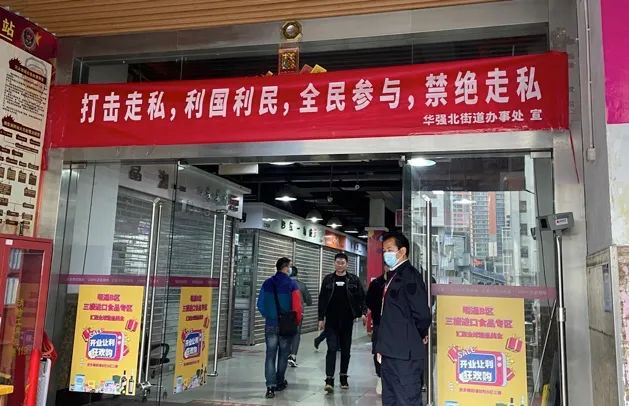
Banners to crack down on smuggling can be seen everywhere in Huaqiang North. Photo by Times Weekly reporter.
"Smuggling has plagued Huaqiang North for many years, and the problem has never been cured." On January 7, Huang Liheng (pseudonym), who has been doing business in Huaqiang North for many years, disclosed to reporters that the smuggling methods of unscrupulous merchants are diverse and have undergone many "iterative evolutions".
In the early days, some unscrupulous merchants carried goods by smuggling, smuggling by fishing boats or trucks and taxis, and then developed "water passengers" to carry goods to avoid customs supervision; Recently, the modus operandi has escalated, and smuggling through cross-border e-commerce has become one of the main forms.
Some merchants have also broken through the regulatory restrictions through overseas purchasing and peer-to-peer collusion (merchants exchange different types of goods to enrich the types of goods). These goods that come through smuggling and abnormal channels are collectively referred to as "parallel imports" in Huaqiang North, and are shipped in large quantities through various channels, and the goods are scattered to various places.
Text | Liu Ting Tu Mengying
This article is reproduced from WeChat official account’s WeChat "Mammoth Plus" (ID: mengmashendu) under Time Weekly. The original article was first published on January 11, 2021, and the original title was "Deep | Starting the North American Cosmetic Smuggling Industry Chain in shenzhen huaqiang: Fake Customs Clearance in the Name of Cross-border E-commerce", which does not represent the view of the think tank.
one
The smuggling chain has a clear division of labor
"Huaqiang North has a trade gene, and the market chose Huaqiang North." In Huang Liheng’s view, Huaqiang North’s e-commerce and supporting industrial chain are mature, with outstanding advantages in information, logistics and talents, making it a distribution center for beauty products.
According to the requirements of the General Administration of Customs, when importing goods, the information of "three orders" such as transaction, payment and logistics should be transmitted to the customs, and the customs will only release them after comparing the "three orders". In order to meet the requirements of "three orders are consistent", criminals buy other people’s identity information through illegal channels and create false "three orders" information.
The reporter learned from many people close to Huaqiang North that the participants in cross-border e-commerce smuggling include third-party operating platforms (platforms with cross-border e-commerce qualifications, such as foreign trade companies), logistics companies, payment companies, software development companies, etc., and their division of labor is clear:
Some e-commerce platforms have open ports, allowing customers to import sales data from other platforms for generating trading orders. There are even e-commerce platforms that provide so-called "special logistics services" to help customers transport cross-border e-commerce goods out of the bonded area.
Software development companies create false purchase information by importing illegally obtained resident identity information; The payment company fabricates payment information according to false orders; Logistics companies provide "empty delivery" and generate false logistics orders.
This is exactly the same as the modus operandi identified by the customs. On December 28, 2020, Yu Xiaopeng, deputy section chief of the investigation department of Shekou Branch of Shenzhen Customs Anti-smuggling Bureau, said in an interview with CCTV News that the smugglers organized the goods abroad and then handed them over to the customs clearance gang, and then the customs clearance gang used the personal information of citizens purchased through illegal channels to deceive the customs with false payment bills and false logistics bills, and transported the goods into China through cross-border e-commerce.
On January 7, Su Xiaofeng (pseudonym), a supplier of cosmetics market in Mingtong, told reporters that the supply of cosmetics market in Mingtong is different, and Estee Lauder, Chanel and YSL are from Europe and America. Baxian Bitong, Qingcao Ointment, Ray and other products are from Thailand; AHC, WHOO, Yueshi Fengyin, Kerun and other products are sourced from Japan and South Korea. In addition, some of Mingtong’s products come from Russia and Vietnam. Although the price is lower, the logistics cost is high.
"I learned that a team has deployed more than 400 people in South Korea to purchase, enter personal information through plug-in software, and generate personal orders. They get goods in Korean duty-free shops on a large scale, and they can also get low-priced discounts. The purchased products are first sent to Hong Kong and then shipped to Shenzhen. " Su Xiaofeng revealed.
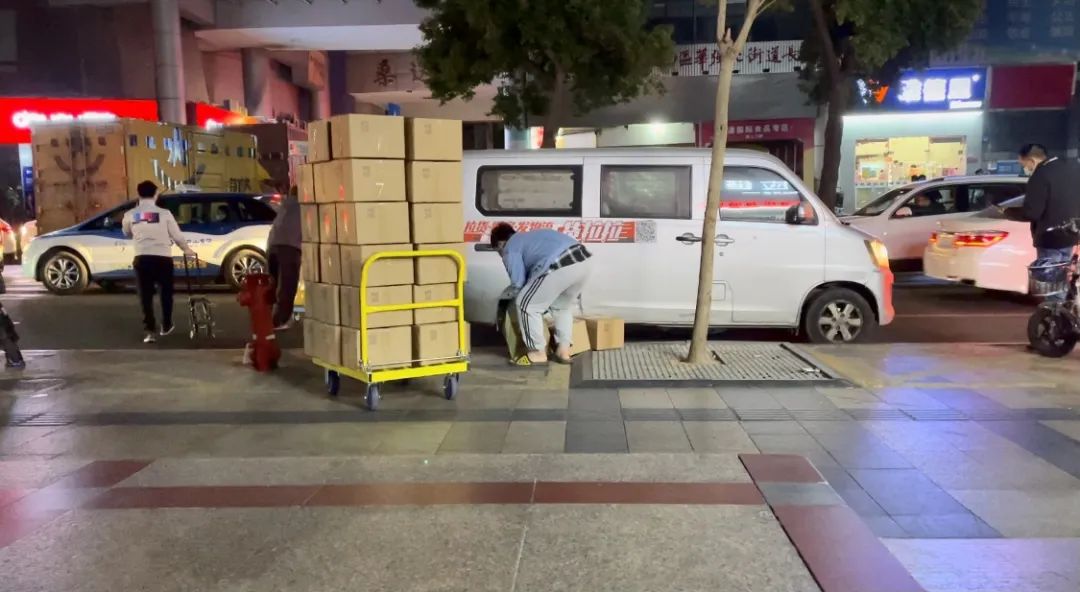
Huaqiang North, which is still moving goods at night, was photographed by a reporter from Time Weekly.
2
How to break through the duty-free limit?
According to the Notice on Improving the Tax Policy of Retail Import in cross-border electronic commerce jointly issued by the Ministry of Finance, the General Administration of Customs and the State Administration of Taxation (hereinafter referred to as the Notice), the single transaction limit of cross-border electronic commerce’s retail import goods is raised from RMB 2,000 to RMB 5,000, and the annual transaction limit is raised from RMB 20,000 to RMB 26,000. This regulation will be implemented as of January 1, 2019.
How to break through the upper limit of duty-free quota is the most critical link in the smuggling chain.
"Smugglers get other people’s identity information out and steal his quota. They plug-in software to obtain private information, and can steal more than 10,000 pieces of personal information at a time. It is better to use the information of people who have gone abroad less. They are almost not in consumption abroad, so it is difficult to find that the credit line has been stolen. When an identity quota is used up, it will be kicked out of the list library. " Su Xiaofeng said. Su Xiaofeng refused to disclose details such as the source of personal identity information, the name of plug-in software and whether the software was developed by the team itself.
"Water passengers" are favored by more small businesses because of their simple operation, although their single cargo volume is small.
On January 10th, Jia Lin (a pseudonym), a purchasing agent, told reporters that the upper limit of individual customs clearance is 5,000 yuan, and the purchasing agent will calculate and distribute the goods to ensure that the goods carried by each "water passenger" do not exceed this upper limit, and the customs clearance will be carried out in the form of "ants moving". The customs will conduct spot checks on customs clearance individuals, and frequent "water passengers" are also likely to be punished.
"Before the epidemic, many online purchasing agents hired people to go to Hongkong to carry goods, and each person was paid from 200 yuan to 300 yuan every day. White households who have not been in Hong Kong for half a year can get higher remuneration. " Jia Lin said.
On January 7, Xu Minhua (pseudonym), who has been engaged in the foreign trade industry in Shenzhen for 10 years, told reporters that individuals have a tax-free ceiling for overseas shopping and do not enjoy tax-free concessions for purchasing in the name of the company. Companies need to obtain import and export rights before they can purchase overseas. After purchasing, they have to declare the purchase scale and price to the customs, and they can only enter the customs after being approved, but they have to pay corresponding taxes.
Some unscrupulous companies also have the means to clear customs with low taxes and fees. They "exchange civet cats for princes" and declare products with lower taxes and fees, but actually replace them with products with higher taxes and fees, or mix products with different taxes and fees to achieve the purpose of tax evasion. "Some are transported in containers, and some are cleared with other companies." Xu Minhua said.
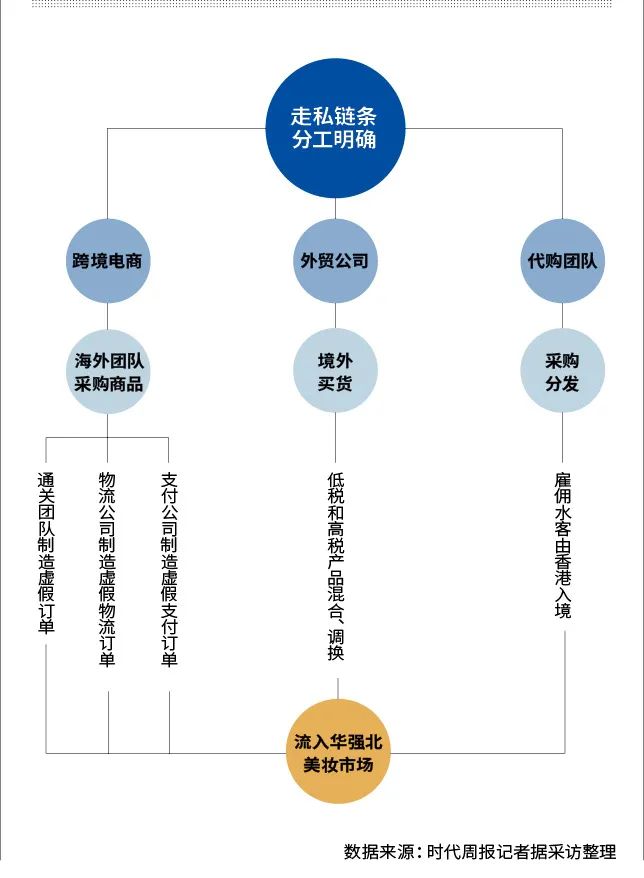
three
Upstream procurement modes are different.
Many merchants in Huaqiang North told reporters that the customs clearance methods of "parallel imports" are different, and the upstream procurement methods are also different: small businesses rely on purchasing to spell orders, medium-sized businesses collude with their peers, and large businesses take advantage of funds to prepay the payment in advance, which has already appeared. Financial practice.
Purchasing is the main force supporting the sales of beauty products.
On January 8, Lin Lin (pseudonym), a practitioner of Huaqiang North Beauty Shop, told reporters that Huaqiang North Beauty Market has obvious advantages in low price and is very popular among purchasing people. "This is especially true after Hong Kong is closed." Purchasing often forms a group of "spelling orders" and goes to Huaqiang North to purchase in large quantities. These purchasing agents "open a group" in their respective customer groups. A bottle of 300ml Lancome powder water is sold at Tmall flagship store for 435 yuan, and the group price can be as low as 205 yuan.
Lin Lin said that the greater the purchase volume, the lower the purchase price. Vendors usually buy a single beauty product in large quantities and then string goods with other businesses. Objectively speaking, cross-selling can also reduce the financial pressure on merchants to hoard goods.
On January 8, Guo Jiawen (pseudonym), who is familiar with Huaqiang North Beauty Market, said that the market is now mature, and there have been many kinds of financial methods for Huaqiang North smugglers. In order to get a lower purchase price, many people will use the "single-order" procurement model to set up a procurement fund to focus on overseas shopping.
"The price of beauty products fluctuates greatly, and buyers will pay in advance to lock the price and receive the goods later. Due to the large purchase volume, the purchase fund will also affect the price trend of products to a certain extent. Once Huaqiang North sneezed, and the national electronic market caught a cold. Now several large procurement funds can affect product prices, and the (market) is so fierce. " Guo Jiawen said.
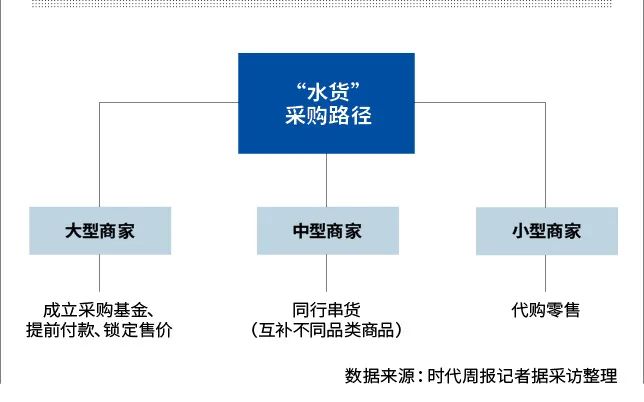
"Parallel imports" are also mixed with "fake goods" and flow to the market together.
"Real goods are sold to first-and second-tier cities or professional beauty markets, and fakes are sold to third-and fourth-tier cities or personal beauty shops." According to Lin Lin, most smuggled goods in Huaqiang North are mixed with fakes and sold together.
Lin Lin calculated an account: the entrance fee for ordinary stalls in the cosmetics market in Mingtong started at 300,000 yuan, and the minimum monthly rent was about 30,000 yuan/square meter. The monthly rent for stalls of 10 square meters was 300,000 yuan, plus the deposit for shopping malls, purchase funds and labor costs, etc., a store had to operate at least one million yuan per month.
"If we only rely on selling parallel imports, the money for tax evasion cannot support such a large scale of funds." Lin Lin said that Huaqiang North beauty vendors mostly sell in a mixed way. "Some merchants will mix 10% of fakes in the same batch, and some merchants are 100% fakes."
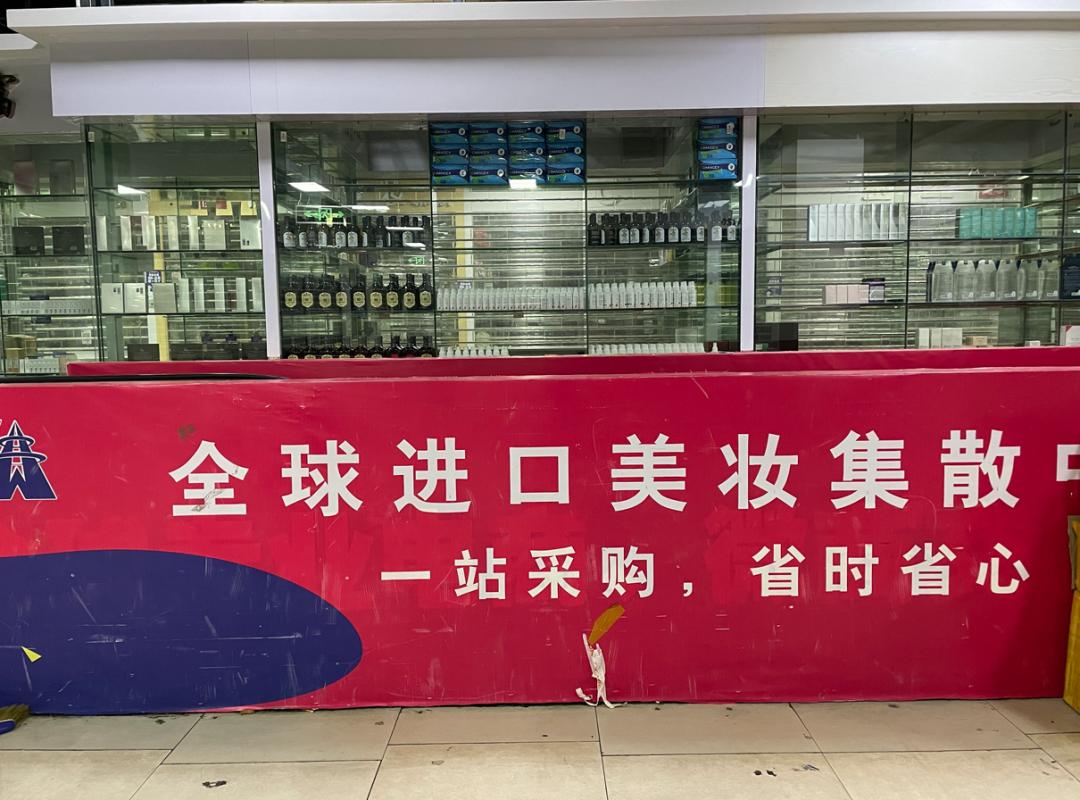
Huaqiang North’s "one-stop shopping" propaganda, photo by Time Weekly reporter.
four
When anti-smuggling is going on
Over the years, the regulatory authorities have always maintained a high-pressure situation on smuggling, and repeatedly concentrated on rectifying and regulating the supply of Huaqiang North to maintain market order.
In May 2013, Shenzhen Customs and Shenzhen police successfully destroyed a "water passenger" network smuggling well-known brand mobile phones, and smashed 16 "water passenger" smuggling gangs, involving 105 suspects, with a case value of nearly 1 billion yuan.
According to the official disclosure at that time, this was the largest smuggling case involving the largest amount and the largest number of people detected in Shenzhen during the decade from 2003 to 2013. It is mainly composed of smuggling gangs at all levels, such as overseas cargo gangs, port "water passengers" customs clearance gangs, and domestic collection and delivery gangs. In the same year, Shenzhen Customs launched nine large-scale operations against "water passengers" in succession, and destroyed 72 smuggling gangs of electronic products, with a case value of nearly 3 billion yuan.
Huaqiang North, once the national gathering place of electronic and digital products, has gradually transformed into the beauty industry in recent years. Some unscrupulous merchants have also begun to use cross-border e-commerce platforms to smuggle beauty products to gain product price advantages.
On January 8, Gong Zhuo, a lawyer of Beijing Deheheng (Shanghai) Law Firm, told reporters that according to the provisions of the Notice, the domestic buyers of cross-border e-commerce retail imports must be individuals and may not sell them again. In the smuggling case of beauty cosmetics in Huaqiang North, the beauty cosmetics imported by merchants are sold in China. This "B2B" trade should be imported through "general trade", and customs duties and value-added tax in the import link should be paid. In the case of high-end beauty cosmetics, consumption tax is also required.
"Merchants should buy goods imported by’ general trade’ in the name of cross-border e-commerce retail imports, forge personal purchase information, enjoy preferential tax rates that they cannot enjoy, and it is also a smuggling act of falsely reporting trade." Gong Zhuo analyzed and pointed out.
According to the "Notice", if the single transaction of cross-border electronic commerce retail imported goods is less than RMB 5,000, and the personal annual transaction limit is less than RMB 26,000, the tariff rate is 0%; Import value-added tax and consumption tax are levied at 70% of the statutory tax payable.
On January 10th, Bai Wenxi, chief economist of IP Global China, told reporters that the spontaneously formed market is inevitably disturbed by problems such as disorder of order and product quality. "Market practitioners and regulatory authorities should adapt to changing needs, focus on the sustainable development and sustained prosperity of the industry, and do a good job in maintaining industry norms and order." Bai Wenxi said.
Extended reading
Almost all the beauty shops are closed! "The Change of Huaqiang North" is mired in the "smuggling vortex" of 600 million yuan …
Shenzhen Huaqiang North was once known as "the first electronic street in China". At present, most merchants here are engaged in beauty products instead. However, after investigation, Shenzhen Customs Anti-smuggling Bureau found that behind the dazzling array of brand-name cosmetics, there is a criminal chain of smuggling through cross-border e-commerce platforms.
This article was reprinted from WeChat WeChat official account’s "CCTV Finance" (ID: cctvyscj), and the original text was first published on January 7, 2021 with the title "Almost all beauty shops are closed! "The change of Huaqiang North" is deeply involved in the "smuggling vortex" of 600 million yuan … ",which does not represent the view of a think tank.
one
Shenzhen Customs cracked the smuggling case of famous brand cosmetics.
The case value exceeds 600 million yuan.
CC beauty cosmetics in Huaqiang North Mingtong Digital Mall is one of the key places in this investigation. The anti-smuggling police found here that in addition to internationally renowned brand cosmetics made in Europe and America, there are many cosmetics made in Japan and South Korea, covering skin care water, eye shadow, lipstick, sunscreen and other varieties.
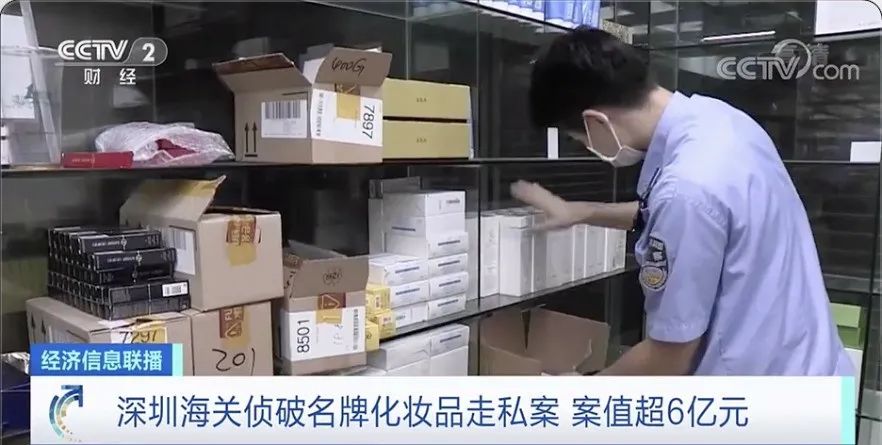
After counting, the value of the goods seized on the spot is about 2 million yuan. In Huaqiang North, the anti-smuggling police also investigated several suspected smuggling shops in shopping malls such as Harman Digital Plaza. After investigation, criminal gangs were suspected of smuggling goods worth more than 600 million yuan.
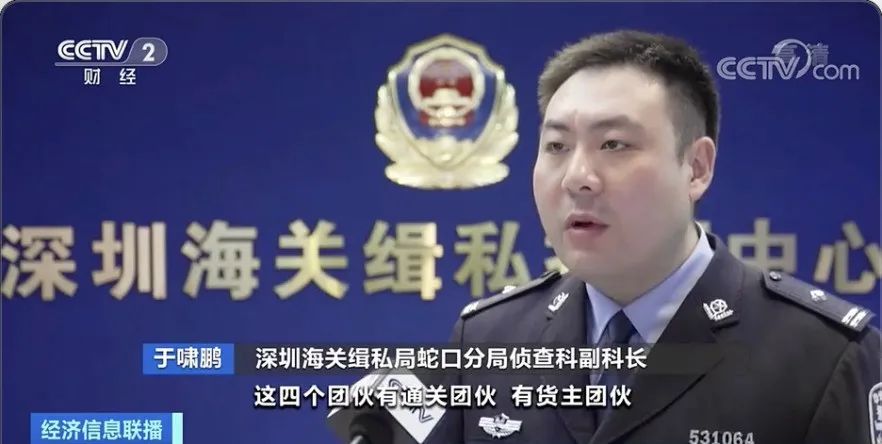
Yu Xiaopeng, deputy section chief of the investigation department of Shekou Branch of Shenzhen Customs Anti-smuggling Bureau, said that these four gangs include customs clearance gangs and cargo owners gangs, which buy personal information of citizens through illegal channels, create false orders, false payment bills and false logistics bills, and then deceive the customs and transport goods into China.
2
Huaqiang North Beauty Shop is almost closed.
Shelf emptying
At present, how is the operation of Huaqiang North Business Circle?
The reporter saw at the scene that more than 98% of the beauty shops in Huaqiang North’s business district are still in a closed state, and the shelves in the store are empty, and there is almost no spot. Some merchants still post WeChat QR codes or mobile phone numbers outside the store, which is convenient for customers to contact.
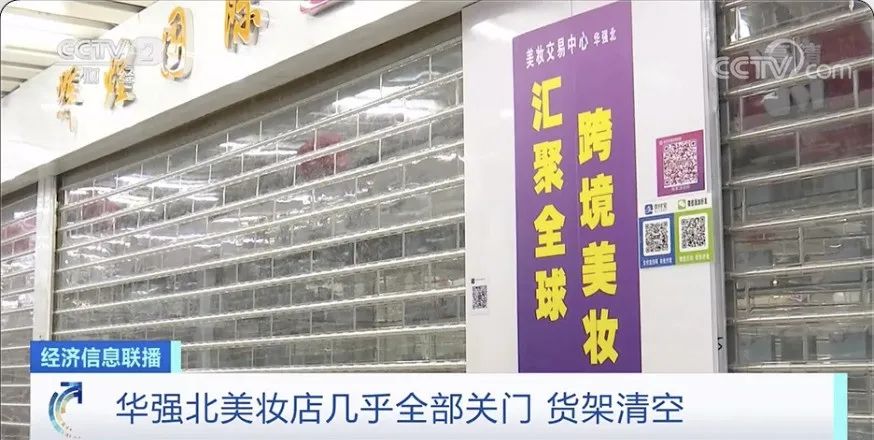
Red banners such as "Combating Smuggling, Benefiting the Country and the People, Participation by the Whole People, Prohibiting Smuggling", "Prospering Business with Honesty, Abiding by the Law and Win-Win" are posted everywhere in these shopping malls, and some of them are marked with "Announcement of Huaqiang North Sub-district Office" in the lower right corner.


Although the stores have been closed, there are still people coming and going in the major beauty cities, and many of them are beauty practitioners who come to inquire about the situation.
Huaqiang North beauty practitioners said: "Because the goods are sent back from various duty-free shops, without formal customs declaration and tax payment, its price will definitely be cheap."
It is understood that China’s laws stipulate that "the contents that should be indicated on the outer packaging, instructions and small packages of imported cosmetics must be recorded in Chinese". Once the businesses that sell illegally are reported or found by relevant departments, they will be fined and closed for rectification.
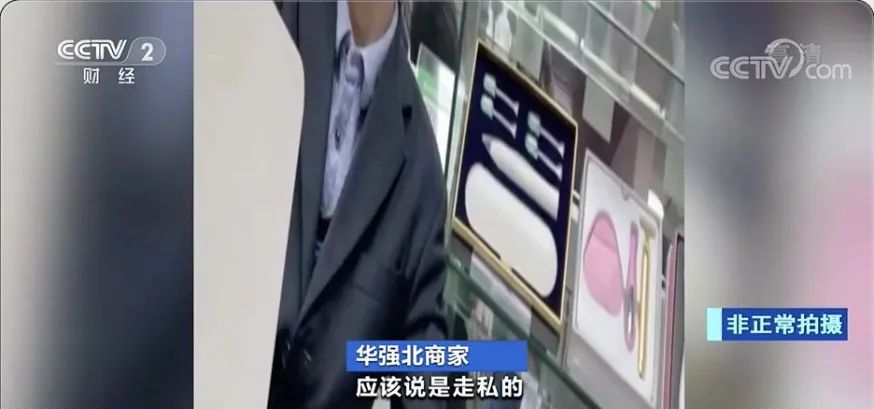
From the once "China Electronic First Street" to the once prosperous beauty store, the transformation of Huaqiang North was once considered as a gorgeous turn. This severe action against smuggling has once again plunged Huaqiang North into the whirlpool of "parallel imports" and "fake goods". The state’s strict investigation and rectification of Huaqiang North Beauty City is to better correct the market. If Huaqiang North wants to find its former glory, it can no longer be opportunistic, but needs a real foundation.
The article comes from Mammoth PLUS by Liu Ting Tu Mengying.
Original title: "Gorgeous transformation" of the most prosperous street in China … failed! 》
Read the original text